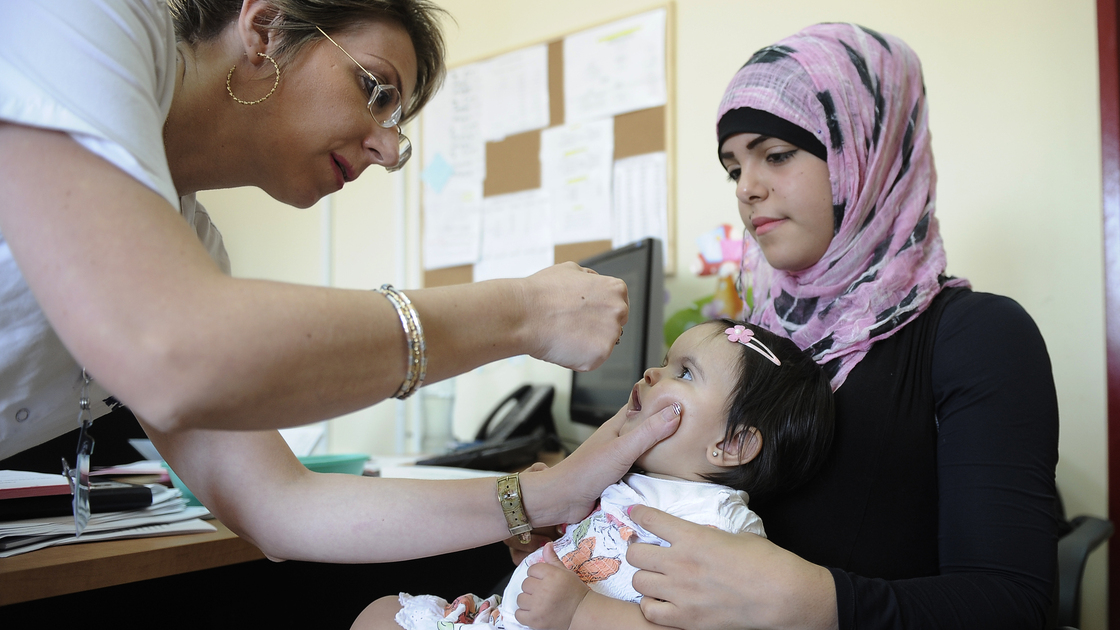
In early August, Israel launched a mass campaign to vaccinate children against polio, including this little girl at a clinic in Rahat.
David Buimovitch/AFP/Getty Images

In early August, Israel launched a mass campaign to vaccinate children against polio, including this little girl at a clinic in Rahat.
David Buimovitch/AFP/Getty Images
Israel is in the midst of a massive, emergency immunization drive of all children under the age of 9 against polio.
Why?
Health workers detected the virus in southern Israel in February. Since then, they've found it in 85 different sewage samples across the country, the Global Polio Eradication Initiative said Wednesday. Yet so far, no children have gotten sick or been paralyzed by the virus.
Israel has one of the highest rates of polio immunization coverage in the world, says Chris Maher of the World Health Organization. And that's one reason why the country has avoided polio cases, so far. But health officials are still very concerned about the situation.
The vaccination campaign aims to give polio boosters to a million children.
"There's no way that 100 percent of the population can be immune at any given time," Maher says. "So any time that virus is circulating [in the environment], if there's a person who's not immune, there's a risk that that person is going to get clinical polio. They're going to get infected, and they're going to get sick."
Israel's last polio case was reported in 1988, and the WHO declared the country polio-free in 1992. The fact that the virus is being found across a wide geographic area in Israel shows that it has re-established a foothold in the country, Maher says, and that it's reproducing in the community.
"The situation in Israel is a significant one because it represents an area of circulation in a world that really doesn't have very much polio anymore," he says.
Last year there were only 223 recorded polio cases on the planet. And they were in remote areas around Nigeria, Afghanistan and Pakistan. This year there have been 214 cases reported, so far, with 128 of them occurring in Somalia — a country that had been polio-free since 2008.
Genetic testing of the polio samples from Israel shows that the virus recently came to the Middle East from Pakistan. Exactly how it got there — by boat, plane, truck or bus — is unclear. But what is known is that the virus can travel inside someone's intestines without making that person sick and then escape into a new environment.
There's concern that the virus circulating in Israel may spill out of the country, says Emory University's Dr. Walt Orenstein, who has worked extensively on polio. "There's enough virus circulating [in Israel] that it could get out of that area in to other countries," Orenstein says.
To ensure the entire community is protected against polio, Israel has started using the oral vaccine, instead of the injectable one. The oral vaccine contains a weakened, live form of the poliovirus, which can spread through the environment and help immunize kids that don't get vaccinated.
Getting rid of polio flare-ups, like the one in Israel right now, is a crucial part of eradicating polio globally, Orenstein says. Although eradication efforts are focused on the remaining reservoirs in Nigeria, Afghanistan and Pakistan, he says, the rest of world can't let its guard down against the disease.
"We've got polio down. The issue now is to knock it out," he says. "That will give us global security that never again will this [disease] cripple our children or our adults."
0 comments:
Post a Comment